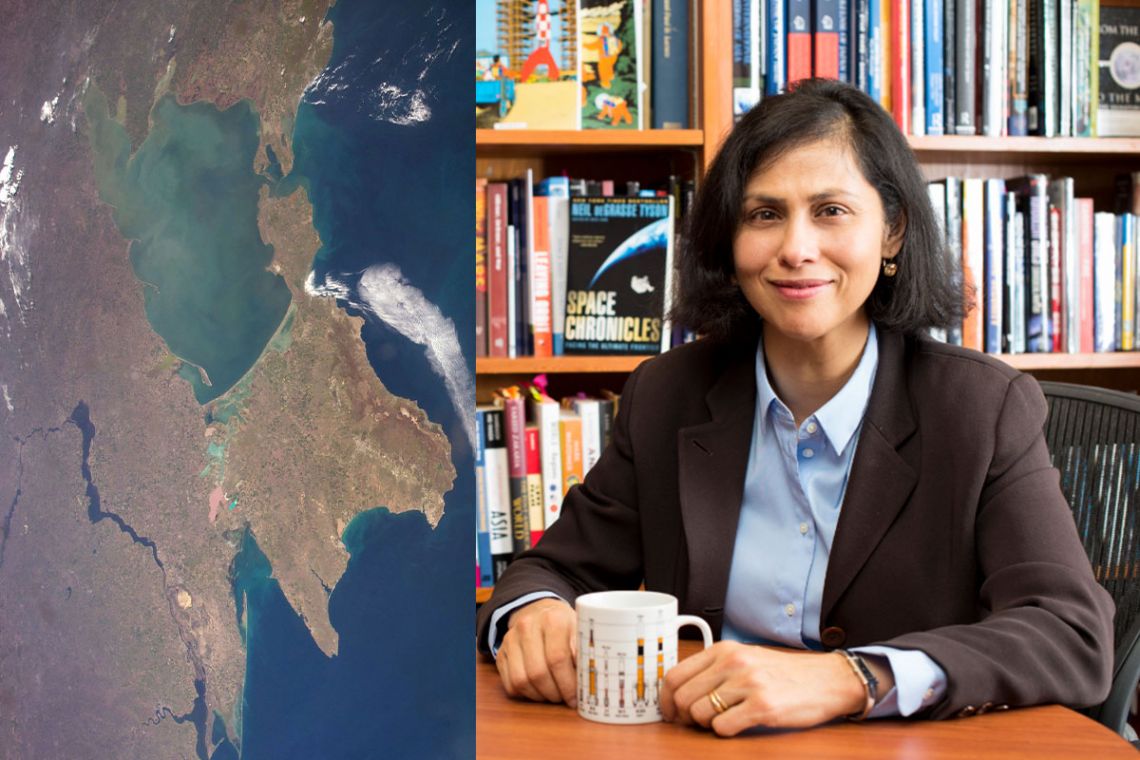Experts: Data From Satellites Critical in Helping Ukraine

Russian President Vladimir Putin’s violent thuggery across Ukraine has bolstered the value of data from satellite-based imagers to drive diplomatic strategies and deliver aid to Ukrainian citizens.
That’s according to experts who spoke Friday during a webinar sponsored by the Space Diplomacy Lab, part of the Duke University Center for International and Global Studies (DUCIGS) Rethinking Diplomacy Program.
The technology, combined with satellite-based internet platforms, has also helped diplomats and aid workers devise humanitarian evacuation corridors and aid officials in assessing the state of infrastructure across Ukraine, they said.
Lessons learned from the technology will provide insights on how best to gather and use such data in future conflicts, they said.
“The gathering force of these technologies means that, over time, we will pretty much be able to detect, attribute and classify much of what is going on on the planet surfaces in terms of human activities,” said guest speaker Saadia Pekkanen, a professor of international studies and law at the University of Washington.
“This includes all civilian, commercial, military, public and private events and operations, anything that can be counted and seen from space will be counted and recorded, sold and disseminated.”
Pekkanen added that if the technology is expected to improve and get faster “to address security challenges virtually anywhere on the planet surfaces -- Ukraine proves it.”
The use of “small satellites and big data” means nations are under the microscope like never before, and “all their behaviors -- the good and the bad -- will be visible,” she added. “Anonymity is under unprecedented assault and it may soon be gone forever."
“What goes for the civilian side also goes for the military side, and I cannot stress this enough,” Pekkanen said. “Satellite imagery is in essence non-discriminatory -- it sees a civilian school bus the same way it sees a military tank.”
Concerns raised during the talk included the availability of this information to enemies and how to help less-affluent countries obtain the technology.
“Small satellites are now capable of rather sophisticated remote sensing and are inexpensive enough to manufacture to launch and operate, thanks to rapid growth in the commercial satellite and launch sectors,” she said.
Benjamin L. Schmitt, a research fellow at the Harvard-Smithsonian Center for Astrophysics and Rethinking Diplomacy fellow, noted concerns about the rise in space debris.
Pekkanen said there’s already an estimated 5,000 satellites in space.
“The astronomers are all up in arms, because the number is projected to go up to 100,000,” she said. “And we're already tracking about 40,000 pieces of debris, to the extent that our census can capture everything. So yes, we are looking at in extremely crowded, contested and congested orbital debris space.”
But, she added: “We need to balance the good with the bad in this sense.”
This event, part of the Space Diplomacy Webinar Series, was hosted by Schmitt and Giovanni Zanalda, director of DUCIGS. Both co-chair the DUCIGS/RDP Space Diplomacy Lab. The DUCIGS/RDP program is funded with a grant from the Josiah Charles Trent Memorial Foundation Endowment Fund.
Watch the full webinar: https://youtu.be/lywa-A8xS8c